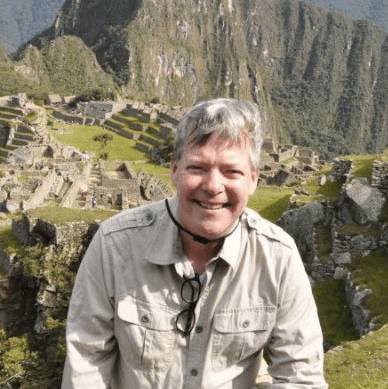
Patrick MeLampy | Finding Great Co-Founders (Episode 6)
 Patrick MeLampy (@pmelampy) is the COO and Co-Founder of 128 Technology, one of the hottest startups in Boston (and has raised $57M to date). He’s been awarded 35 patents in telecommunications. Prior to 128 Technology, Patrick was the Vice President of Product Development at Oracle. Prior to Oracle, Mr. MeLampy was CTO and Founder of Acme Packet (NASDAQ: APKT) that was acquired by Oracle in February of 2013 for $2.1 billion dollars. He’s also on the board of directors at Ipswitch. Mr. MeLampy has an MBA from Boston University, and an Engineering Degree from University of Pittsburgh.
Patrick MeLampy (@pmelampy) is the COO and Co-Founder of 128 Technology, one of the hottest startups in Boston (and has raised $57M to date). He’s been awarded 35 patents in telecommunications. Prior to 128 Technology, Patrick was the Vice President of Product Development at Oracle. Prior to Oracle, Mr. MeLampy was CTO and Founder of Acme Packet (NASDAQ: APKT) that was acquired by Oracle in February of 2013 for $2.1 billion dollars. He’s also on the board of directors at Ipswitch. Mr. MeLampy has an MBA from Boston University, and an Engineering Degree from University of Pittsburgh. “The life-cycle of many small businesses ultimately is to be acquired when they can’t sustain growth. And so you just got to face into it and say, all right, now it’s time.” –Patrick MeLampy
“No one will invest in you if you don’t invest in yourself first.” –Patrick MeLampy
“We always ask ourselves, is that the right thing to do? Then we try to do it. Sometimes it’s hard, but that’s we do. We saw a lot of shenanigans in the late 90s and early 2000s at other companies, and maybe it’s a fall out of that. It’s just what we’ve always done.” –Patrick MeLampy
The Cheat Sheet:
- Learn the key metric when it’s time to sell your company
- What’s one huge signal you’ve hired the right leader
- Learn why pivoting in your business is a must
- Learn why building the right relationships can be the difference between starting something big or always thinking about what could have been
- Understand what basic fundamental philosophy can help you to rise to the top
- Get key insights on building strong co-founder relationships (and how that will benefit you)
- Learn the value of role playing in the hiring process
- Why you have to go all-in in order to really know if your idea will work or not
- And so much more…
Scroll down more for a summary, show transcription, resources and more.
When I sat down to speak with Patrick MeLampy, he’s genuineness, caring, positive spirit and his technical insights really jumped out at me. It was also the high value he placed on building deep, meaningful relationships with people he worked with. Plus, I admired the scotch club they started in the company!
After the interview, I saw why his co-founders value him so highly.
He shared two stories with me that will give you some more insights into who he is and his entrepreneurial journey.
Story #1: (His conversation with his boss–earlier in his career–on leaving the company, and joining a startup company).
“You’ll be a fool not to go and try to start that company.”
And this is the guy I worked for who really needed me to stay and do my job. He was urging me to go. And I was like, “Wow.”
And he said, “I’ll tell you what. I’ll take the risk away. You go and work with Andy. If it doesn’t work out, I’ll hire you back.”
Story #2: “When we started Acme Packet, we went to raise money with a VC that invested in our last business. We only went in there as a courtesy call because we didn’t have a business plan pulled together. We just popped in to say hello and tell them we were starting a business and we’re going to come back in three, four months after we get our ducks in a row and we’re going to talk to you about raising money. And they wouldn’t let us leave that day without accepting an offer to invest.
And later on when we were asking them, why would you do that? And they said that the reason why businesses fail more than not is because people don’t get along. They said, you guys built a great working relationship. You’ve learned a lot in your last business, and your next business is going to be better. We don’t even care what you do, we’re in because the quality of the people and the integrity of the founders. So they were in without really hearing the idea. And they made that judgment call based on well we got a long and how created teams.”
Listen, learn, laugh, and enjoy this interview with Patrick!

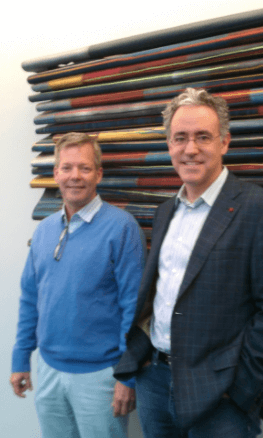
Show Transcript
Interviewer: Okay. We are onto another episode of executive breakthroughs, and I have a fantastic guest here today, Patrick at 128 Technology, and he’s the COO. And so we’re going to be working, talking a lot about questions and answers that you’re going to hear and a lot of insights. So welcome to the show.
Patrick: Well, thank you very much.
Interviewer: So I want to find out a little bit where did you grow up, a little bit of your background? I read that you grew up in Pittsburgh and so why don’t you just tell us a little about family and …?
Patrick: Yeah, I was raised in Pittsburgh, Pennsylvania in a rural area, with eight brothers and sisters so it was a big family.
Interviewer: Wow, you learnt to share and communicate and have to get a long?
Patrick: Of course.
Interviewer: And what child were you out of the eight?
Patrick: Third from the oldest.
Interviewer: Third from the oldest? I wonder what that says, usually there is youngest and oldest I know but I know in the middle.
Patrick: I’m just in the middle, yeah.
Interviewer: Okay. So you figured how to get along … And your dad was an engineer too?
Patrick: He was. My dad my engineer, worked at General motors and then of course got into the steel industry and that’s how we moved to Pittsburgh when I was very small.
Interviewer: Very small. So was dad like a driving force for you growing up or someone that you looked up to or was he just …?
Patrick: Of course he was. Yeah, of course.
Interviewer: And that sounds like that’s led you on the path to going down the path that you’re on now getting really interested in technology and engineering. Although, back then I heard that it wasn’t just the technology part of it but just more of the engineering and you kind of fell onto that later on?
Patrick: Well, when I was younger and going to school, I was good at math. And everybody said, well, if you’re good at math you should be an engineer. So I didn’t know much about engineering but I did okay at school, I wasn’t a great student but I did okay.
Interviewer: And then what was your first job outside of …?
Patrick: I worked at the Timken Roller Bearing company in Columbus Ohio. I was a what they call a systems engineer there, trying to work on business methods and make things more efficient. And it was before computers really had … Personal computers had really been a part of how corporations made themselves efficient. It was just before they were coming in.
Interviewer: So how did you get into technology then from there? Was it the next job that you had or was it there?
Patrick: Well, I did do some programming in college FORTRAN, and punch cards and a little bit of TTY stuff, but I didn’t take any computer science classes. That didn’t really exist at the university of Pittsburgh. So when I went to the Timken company, they had some mainframe computers and they still had some punch cards tabulators and all that. And they brought in IBM PCs, they were fresh brand new and they said, hey, college boy, come over here you do this. So they just sort of asked me to do it because I was young.
Interviewer: And you just figured that out on your own, or how did you …?
Patrick: Yeah. There wasn’t much on those computers in those days. They had a 10 Megabyte hard drive, that’s all they had.
Interviewer: Well, that’s not much. So you just using them in the business and figured out like the applications for them? Did you get help?
Patrick: Yeah. We did some projects, inventory projects and we did some … They did a lot of computations there manually and we replaced them with programs, or you could … That kind of thing.
Interviewer: Okay. And is that kind of the first time and you got really motivated to be in technology but sort of working on …?
Patrick: Yes, yes. I might have learned by working. I didn’t learn much in college. I mean, I got … You know.
Interviewer: You had a taste of it.
Patrick: In relation to high technology.
Interviewer: At this point, did you have any strong mentors or people that were in your life that were driving you or did you have anyone that …?
Patrick: I mean, the guy that I worked for at the Timken company was also very interested in it. He was very helpful. He wanted to start a business. He didn’t while I was there, but he wanted to.
Interviewer: So when did you leave there and what led you to kind of on your next path?
Patrick: Yeah. I came to Boston on … I was living in Columbus, Ohio at the time, and I came to Boston on Vacation. I had just leaned a language called C programming language, and I learned it on my own at night. And when I came to Boston, I got the Sunday Globe and I opened it up and … It’s hard for people to imagine this before the internet, but there were easily 300 pages of help wanted ads for C Unix programmers in the late 80s. And I said, wow, this is great. And it’s like I just went back to the Timken company, I resigned and I moved here, and started-
Interviewer: That first, you were just like I’m moving to Boston because-
Patrick: Yeah. I had a relative here that let me stay with him for a while, so it helped out.
Interviewer: So what was that next job? What did you end up taking in …?
Patrick: Well, oddly, I was looking at some really good high-tech jobs but I wanted to be in the city because I never lived in the city. I actually took a job doing systems engineering at the Harvard community health plan, which at the time was somewhat small and very, very fast-growing. So it was in its own way, it was the most … Compared to the Timken company, it was very entrepreneurial, very fast-growing, That was my first experience with companies that were growing fast.
Interviewer: So that was kind of your entrepreneurial folly, I guess working in that. What kind of led you down more of the path to starting your own thing? Like what kind of set of events?
Patrick: Yep. So I continued to work on projects for about two or three years at the Harvard community health plan, finished my MBA. And the high-tech community in Boston was really starting to really get going. And I become interested in voicemail while I was working at the Harvard community plan, we were looking at systems from a converse network systems. And we were sizing them and pricing them and thinking about efficiencies and in the meantime I found out that there was a company here called Boston Technology that was making voicemail. And they had five engineers at the time, and they actually hired me and I was the fifth engineer actually. And that company was just get getting going, it was a lot of fun.
Interviewer: So you worked there for a while and you made some obviously some good connections and you started the [crosstalk 00:07:25]?
Patrick: Well, that’s where I met Andy Ory, who’s been one of my … He and I have started a couple of businesses, or he did the first one and then we started Acme Packet together. And that’s where I met him. I also met Bob [Penfield 00:07:37], another engineer here, and Peter [Cumberford 00:07:41]. The company was run by younger people. They were younger than me that actually started the business. And they believed that business into being, they were just incredible. And they were great to watch, and it was fun.
Interviewer: And it actually gave you a lot of freedom, it sounds like?
Patrick: Well, they worked really hard. These guys would sleep on the floor in their office. They were crazy and they worked really, really hard, but very, very inefficiently as well. But it was fun. It was fun, I have to say. It was a very good job. And most people when I left there, they had grown quite a bit. They had … I don’t know, 400, 500 employees by the time I left, which was about three years later. And when I left it was because I was going to start be part of an entrepreneur company.
Interviewer: And what did you take away from that experience? Was there any like big learning things that you took away from working?
Patrick: At Boston Tech, they had a culture … They didn’t always … They weren’t 100% … Like they believed what they were doing so much, it wasn’t real. They believed in things that weren’t quite real. And I don’t want to say anything disparaging about the company, but they would do things like round up every chance they could. And I felt like they didn’t need to do that. I felt like the company and the products were good enough and they didn’t need to do that.
Interviewer: Got it. So you left there and then what did you do? What was the next step on the entrepreneurial journey?
Patrick: Well, Andy Ory had already started a company called Priority call management. And I was helping him as a friend and as a consultant. I worked for beer or something. And he had started the company on a shoe-string. And was very excited and very … If you ever met our CEO, he is very … A fantastic leader. So he urged me to consider taking a job with him. And I was just newly married and I had a mortgage, and I just didn’t really feel like it made sense.
And he said, “Well, you should go and talk to your boss and see what he says anyway.” He thought that … And he was wise because I went and talked to my boss, he’s name Bill Claybrook and he said, he said, “You’ll be a fool not to go and try to start that company.” And this is the guy I worked for who really needed me to stay and do my job. He was urging me to go. And I was like, “Wow.” And he said, I’ll tell you what, I’ll take the risk away, you go and work with Andy, and if he runs out on money … He had three of four months of money in the bank, it’s all they had to run the business. He said, “If it doesn’t work out, I’ll hire you back.”
Interviewer: So why do you think he did that?
Patrick: Because I think he was-
Interviewer: Because it’s a unique thing. I mean, I’ve had one person who did that for me, but that’s … It tells you have a unique relationship with that person.
Patrick: Well, I mean, he liked me and I liked him. And he felt like it was something that I would regret if I didn’t do it. And he took away the reason why I wouldn’t do it, and so that was good and that was nice of him.
Interviewer: So then you jumped at the opportunity and went in to it and how did it … I mean, obviously, it’s worked out well over time?
Patrick: Well, that business, you learn a lot about what not to do by making mistakes. And that business wasn’t really a good business in the beginning. We didn’t pick the right market, the technology was difficult and expensive. So we struggled for at least a year and a half, maybe going on two and then we found our way.
Interviewer: How did you find your way?
Patrick: Well, as usual, our principle initial idea, a lot of startups wasn’t going to work. And so then you had to pivot or find some other way out or quite, right? Just say uncle. And what we did was we … It’s classic, but we had borrowed money from a lot of people in the form of advances of equipments. And one of the guys that advanced us a bunch of equipment, his name was Bob [Medona 00:12:18]. And he had given us, or advanced us equipment that we probably couldn’t pay for.
He didn’t want see us not pay for it, that’s not what he wanted. He was very interested in us also pivoting and finding a new … And he connected us with some people that wanted to do a particular feature called international calling card call back systems or whatever, which wasn’t what we were making. But we was close. We figured with a month of work or two we could get it working. And so that’s what we did. And actually we started making decent money for the first time shortly thereafter. And he funneled business to us and we were able to pay our bills and he was happier.
Interviewer: And then from there, so you had this business but it wasn’t the business that you wanted to, so how did you …?
Patrick: Well, we pivoted one more time into pre-paid cellular systems and we did well much better, grew the business to … Andy would remember exactly the earnings and revenue growth. But it was a sizable business and we sold it to LHS group for roughly around $180 Million. And it was a good thing we sold it because that was a real tough business. And we never wanted to do that again. That was a tough business. And multiple pivots, complex sort of customer’s problems and … Not problems, but it was difficult, it was a hard business. For the dollars you earned it was hard work.
We were actually writing software and putting it on top of over people’s hardware, and the people that sold the hardware were making all the money. And the people that were buying the solution, valued the hardware not the software. That’s the way it was and we felt like we were adding most of the value but not getting a lot credit. So we decided never again would we be a system’s integrator slash software that re-markets other people’s hardware. We said we weren’t going to do that again.
Interviewer: Okay. So you sold the business. And did you all have to work in the business when [inaudible 00:14:39] a lot of time, people require you to do that at the next?
Patrick: They didn’t require it, but I stayed on for about a year, a year and a half.
Interviewer: Did Andy too or did he …?
Patrick: No, he left probably in about three months or so. But I stayed on and really wanted to make it work. And then the company that bought us, sold themselves. And when that happened all of the options we had vested right away and no one really believed that this company was well-run at that point, so everybody was starting to look for the doors. So I decided to leave and start Acme Packet. And I called Andy and he was very interested in helping me out, and we got it going.
Interviewer: Okay. So this time you actually were leading the way on this business, that’s interesting.
Patrick: Yeah, not this one, but that was [crosstalk 00:15:31]
Interviewer: That one, yeah.
Patrick: I mean, I had the idea and he was all for it. And we tried to … We had a couple of get-togethers with potential investors, everybody was excited. So that business we started it … It’s hard to believe it but it was in 1999, we were forming the business. And it was before the NASDAQ crash from 5,000 … Roughly where it is now, and before the airplanes hit the buildings and everything. And it was a pretty crazy time for the … Everyone was throwing money around willy nilly, so it was pretty crazy.
Interviewer: So talk about working with another founder because a lot of times these startups companies go south or things don’t work, it’s that people don’t have a way to compromise, arguments come up, divisions happened, it’s obvious since you two have been working together for a long time and a lot of different scenarios, that you found a way to communicate. Work together, find solutions, get on the same page. How have you done that? Like what needed to happen in order to …?
Patrick: I mean, Andy is a great and easy person to work with. And I think we both just work together well, I guess that’s it. He has different strengths and I do. And we both respect each other. We’ve been working together for a very long time. When we started Acme Packet, we went to [inaudible 00:17:10] park adventures to raise money, and we only went in there as a courtesy call because we didn’t have a business plan pulled together. We just popped in to say hello and tell them we were starting a business and we’re going to come back in three, four months after we get our ducks in a row and we’re going to talk to you about raising money. And they wouldn’t let us leave that day without accepting an offer to invest. And we didn’t even have a plan.
And later on when we were asking them, why would you do that? And they said that the reason why businesses fail more than not is because people don’t get a long. They said, you guys get a long and we invested in your last company … They were an investor in the Priority call management. They said, we really, really like you guys, we think you guys are great. You learned a lot in your last business, your next business is going to be better. We don’t even care what you do, we’re in because the quality of the people and the integrity that we had. So they were in without really hearing the idea. And they made that judgment call based on well we got a long and how created teams.
Interviewer: So what did you learn as you started Acme Packet from working with Andy? What were some big Lessons that you learned that you put into that business?
Patrick: We didn’t really chose a great market or even have a great idea on our first business. We did okay because we executed well, but the market was small, it wasn’t easy to understand, the product space changed, and we were lucky to sell the business when we did. With Acme Packet, we wanted to pick a bigger market. We wanted to look at the major trends and make sure we had a good thesis for a longterm value proposition. And so we were more thoughtful about that.
And if you looked at our original description of what we were going to do, then if you look the company when it was going public five years later, we hadn’t changed much. We didn’t have to pivot once. So the good news was, we at least made the right choice. And of course, things happened that we didn’t anticipate that resulted in selling the business to Oracle. But it was a great 13 year run, it was a great business. We made a lot of money. We sold billions of dollars of the product. So I think that we chose better the market and did a much better job.
Interviewer: Why did you end up selling the business? What led to you …?
Patrick: Yeah, it’s a good question. It was hard to grow the business. The market for our product was 600 million and we had 300 million or 310 million or something. So we had 50 to 55% of the market, and there was probably 40 competitors, probably only three that were credible. But when you think about it, it’s pretty hard to take any market share when you have that big of a … So that was one reason. I think fundamentally, a second reason was the value of voice calls doesn’t matter where they are in the world, was plummeting. Just long-distance people didn’t stop paying for it, it was given away free by everybody. And people also stopped making phone calls, fax calls, phone calls all kinds of calls people stopped making them as much, they texted, they emailed, they found other ways to communicate.
And so what was happening is the market value of voice was declining. So we, our product, which was probably in 90% of the world’s network was facilitating voice going between IP networks. And we just decided that, gosh, with voice declining there is going to be less money for the business case therefore less dollars to spend and the $600 million market isn’t growing. And so without any market growth, there is no chance we were going to get to grow our business.
When you try to manage a business that isn’t growing, it’s hard because everybody wants a raise, everybody wants to hire more people, and not only do you have to say no, you actually have say, you have to do more with less if the business isn’t growing. And that’s a different kind of leadership than starting businesses and growing them when they can grow.
Interviewer: What advice would you give people on exiting the business and selling because obviously you’ve done this several times? What things have you learned that is being helpful when you go down that path?
Patrick: I almost think you have an obligation to your customers and to your employees and to your investors to find a home for a business that you can’t grow because businesses have a life-cycle. And a business that isn’t growing that’s mid-sized or small that’s in a standalone environment isn’t going to thrive. I mean, it’s just not a good place for people that work there because they won’t have a career paths. It’s not a good place to try and convince investors that you’re going to be there, paying dividends or whatever it is, it’s just not good.
The life-cycle of these small businesses ultimately is to be acquired when they can’t sustain growth. And so you just got to face into it and say, all right, now it’s time.
Interviewer: And move on. Talk about your customer relationships that you build listening to the customers because if you gained that much of a market share … I mean, of course you’ve got great technology and services, but what … There’s obviously had to be some other stuff and how you’re building the relationship with these customers that separate yourself out from the other people that were in the industry and probably just in general technology to get that much of a market share in any market?
Patrick: We had a very good reputation, and I think for a couple of reasons. I think one is, the product worked, and that’s important. We ran that business for 13 years, and we never really got dragged into any sort of legal issues around the product functionality not working, or meeting requirements or contracts. So we ran a good business. It was clean.
I think another reason why people had such loyalty to us is that, that whole market for voice over IP had a lot of really big players in it, CISCO, Avaya, Ericsson, Alcatel, Norton, I mean, over the years there were giant companies. And there was some small companies in the business, Sonus, Acme Packet, and a few others that had really credible products and people just loved the small businesses. It was almost an advantage for us. We could be responsive, we didn’t have bring out three inch stick contracts every time you wanted to have a discussion. So people liked that about us.
And I think for us, we were the last component that went into these solutions. And we were in the middle of the solution. And people had problems, and they’d come to us and say, gee, this doesn’t work, can you fix it? And they knew that no one else would fix it without being paid. And we frequently did fix it. So we had people liked us and-
Interviewer: And you solved their problem. You saw they were in pain … It’s like of Apple today, if I call Apple about something, they’re helping me and they’re going to do whatever they can even if the problem is not theirs. And that makes me want to be more of a loyal user because I know if something happens, I can call them and they will solve the problem. They won’t sit there and say, it’s going to cost you $59 to fix this, they will just stay on the phone and help me solve it.
Patrick: Exactly. And you might say that it was the support and systems engineering hand-holding and problem solving that we did that-
Interviewer: But it’s the promise that you kept to people too. You said what you were going to do, you built it, you executed on it, and then you supported them around the edges and things that they needed to do.
Patrick: These programs were very successful at these companies, so all of our customers at Acme Packet the people that ran those programs did very well. I mean, they had met all of their goals, they hit the mark on in terms of quality, in terms of return on investments, so they all did well. And so they had a good feeling about us.
Interviewer: So you sold the business, what happened before and then eventually you got here, so how did that iteration go? How did that pass go from some-
Patrick: Yeah, after we sold the business, Andy left … There was no real place at Oracle for a CEO, so he left fairly quickly. And by the way, Oracle treated us really well, great company. Everyone talks about how bad they are, I think they’re actually pretty good.
Interviewer: Well, obviously, they did grow the business, they have to be otherwise in continuing forward and integrate all these other businesses and …
Patrick: I mean, we tried to buy a couple of small companies at Acme Packet, well, we did buy three or four companies at Acme Packet. The way Oracle buys companies is amazing, really well-done. I learned an awful lot by watching-
Interviewer: But what do they do well that other people are not … Because I know that people probably would know like what’s their secret or [crosstalk 00:26:47]?
Patrick: They have this rip the bandage approach that is phenomenal.
Interviewer: What’s that?
Patrick: Well, when they buy you, there is always integration issues, multiple systems problems with old ways of doing business that they don’t want you to do. And rather than do a two-year project to build all of the new systems, run them in parallel and then cut over, they literally will just say, just do it. So people will say … I’ll just give you an example, so we were using salesforce.com at Acme Packet, which is an arch competitor of Oracle. So they buy us, and they say, okay, so you have to get off of that. And we were assuming that they’d give us two or three years to migrate off or find a way to transfer all of the data. And they said, we’re not going to transfer any of the data, we’re just going to shut it down, you guys have to type it all back in.
And so all of the sales guys, well, that means we’re going to stop selling because we have to go and type stuff in, and they said, that’s okay. And literally the sales ground to a halt, no sales were being made, the business ground to a halt for about six or eight weeks while everyone just got on to the new systems and then we were up and running.
They were smart because they also had very reasonable quotas for the sales guys. They knew that they were going to hurt us. They knew that was going to happen because they’d done it so many times and between reasonable quotas and between fair treatment of everybody, I think 85, 90% of the people felt they got treated very fairly. They were able to rip the bandage and get the business converted to their way of running-
Interviewer: A lot quicker than-
Patrick: Very quickly. Oh, yeah, very quickly.
Interviewer: Which in their ROI I guess they thought would … Instead of two, three years of doing it, yes you’re not productive for eight weeks, but then we don’t have to sit there for a couple of years and work with the other system and have to [crosstalk 00:28:48]
Patrick: And they buy 40 companies a year. I mean, how could you ever not … So they’re very good [crosstalk 00:28:54]
Interviewer: So how culturally, did they do anything that got people integrated better on a culture side, that you saw, or was it more of this process of getting everything integrated?
Patrick: I think their culture … They don’t tell you what their culture is or they don’t describe it, but if I had to guess, everybody that introduces themselves at Oracle says by which acquisition they joined Oracle. Oh, I came in with this company, or I came in with this company. And maybe it’s because we were not their core sort of database business, we were in their peripherals, but it seemed to be the culture of the company was about being acquired and joining up and … Everyone said, if you stay here three years, you’ll stay forever, and I think that’s true. I think that they treat people fair and it’s a comfortable place to work.
Interviewer: So why did you end up leaving then? Because obviously you left.
Patrick: Well, I did leave and they were treating me very well, so it needed to be a good reason to leave. Now I made a lot of money at Acme Packet, so I didn’t need to work, but I wanted to do something. I was too young to retire, so this five other founders in here that are engineers worked really had at Acme Packet, but weren’t independently wealthy. And they were constantly trying to start a business seeking my guidance. And they had terrible ideas. And they just didn’t think things through, and we would help them by introducing them to some venture people, and help them by getting meetings with potential customers to discuss their ideas, and they were just doing a really horrible job. And I thought, well, I need to help them out. We did come up with the idea for what we have-
Interviewer: Why did you feel like you needed to help them out?
Patrick: Because they’re good guys. And besides I like … What am I going to do? I had to do something, I had to work. So we had a couple of meetings and we said, we agreed that we wanted to start a business then had to set about finding a market that we wanted to participate in.
Interviewer: So then what did all end up doing? What it this business here?
Patrick: Yeah.
Interviewer: Okay. Oh, I didn’t know that … Okay, pivot right into here.
Patrick: Yeah.
Interviewer: And then Andy joined up or he …?
Patrick: Yeah. There was seven founders. Six of us sort of agreed to start the business, and then the six voted, let’s go see if Andy wants to participate. And we decided we wanted to have him as well. So he was the last one in. But I think it was by unanimous. We looked at each other and said, we need Andy.
Interviewer: So bring the band all back together on the way?
Patrick: Yeah, I think so, yeah.
Interviewer: And so what’s your philosophy? Because obviously you’ve heard a lot of different things you’ve been doing, what’s like one core philosophy that you really hold up high?
Patrick: I think you always have to do the right thing, and not just by the investors because obviously you have to do right by them, but by your employees and by your customers, you just do the right thing. Just treat people right, if you really screwed up at a customer, give them their money back. Whether you’re right or wrong, it doesn’t matter, if they are not happy, they’re not using the product. Just do the right thing, that’s really what we try to do. We always ask ourselves, is that the right thing to do? Then we try to do it. Sometimes it’s hard, but that’s we do.
Interviewer: What doe that come from? What philosophy doing the right thing, is it something you grew up with that you learned then, or is just something that you …?
Patrick: I don’t know. I know we saw a lot of shenanigans in the late 90s and early 2000s at other companies, and maybe it’s a fall out of that. It’s just what we’ve always done. And it isn’t just me or Andy, it also with the CFOs we’ve had, we just always tried to do the right thing.
Interviewer: Got it. What separates a great leader from a good leader from your perspective?
Patrick: Wow, I read that as one of your pre-questions and I was trying to think about a good answer-
Interviewer: Because I know people they’re watching and listening to this, they really want to know how do I take my leadership to the next level? And they maybe very successful now, but people are always looking on new ideas and nuances and things because often it’s a one or two degree change in what you’re doing can give you massive lift.
Patrick: I think you’re right, and I think Andy our CEO is a great leader. I think he has … I’ll give you an example of a great leader. So when you hire people, really key people, you expect them because they’re leaders and they have leadership experience one would expect that they would be able to bring lots of people with them, follows, if you will. People that they could convince to come follow them and people that would want to follow them. And invariably, that’s the true test of how strong a leader is. Like you can use a retain search and bring in a top leader and pay him a lot of money, but if he doesn’t have 20 people that love him and want to be with him, then you’ve hired the wrong guy. And time and time again that’s happened.
We hired two very senior people at Acme Packet, I’m not going into too much detail because I don’t want to criticize them. But one of them came on board and brought literally 20 people that we didn’t know we needed and spent huge amounts of money and built a great organization and these people loved her and they followed her from multiple jobs. And we also hired someone to come in and run a bigger group of engineers and very senior level job, and he didn’t bring anybody. And so he didn’t anybody. And we said, hey, we’re looking to hire people, who do know? Nobody. So I think one was a great leader and the one was a good manager. And I think that’s the difference to me.
Interviewer: What’s your philosophy on hiring now? Because obviously you’ve been in a lot of different companies and a lot of different organizations. How do when you hire people what do you ask them, how do you think about these hirers, like what goes through your head like today if someone was going to come in for some position, how do you think through the hiring process? And how is that evolved and changed over time?
Patrick: Well, that’s a very, very good question because we argue about that a lot internally here. This company, we’ve done the best hiring we’ve ever done. We made the least mistakes and have the greatest and best teams across the board. We’re now using and applying tests with all of our engineers, and finding that to be very helpful. I mean, it’s a three hour test, so if you want to work here, you got to take a three hour test. And that seems kind of … Right away, most people say forget it. I have kids, I’ve got a wife, I can’t spare three hours, yeah. It rules out people that don’t-
Interviewer: That’s an interesting thing that one little test it’s almost-
Patrick: Well, it’s a three hour test.
Interviewer: Well, it’s three hours but three hours in a career that your going to spend time in seems pretty minimal. It’s just interesting to see that the bar for someone is that low that they’re not wanting to take a test.
Patrick: Well, the test is also illuminating in a way because they can pick the language they want to use. They take the test and then it gives us something to dialogue with them as though it was real work. We get a chance to say, why did you do it this way, or you know. Just as though we were working. And that really helps give us a way to sort of role play what it would be like to work with person.
So the combination of people that won’t take the test and the improved interview process, we’ve hired very strongly our engineering team. And I think that’s the hardest function, to hire properly. I think it really is hard.
Interviewer: So the role playing actually sounds really interesting because then you’re really able to see what the make is the person, right? Not just how they’re solving the problem, but how they think, how they communicate, how they collaborate, how they’d solve a problem. I mean, you can probably get into people’s values, morals, ethics and everything else if they line up with sort of your thing of doing the right thing, or would they skip corners, or what they want to do?
Patrick: Exactly. No, that’s exactly right. The test itself is very hard and almost no one does well on it-
Interviewer: Do you care as much how well they do on the test, or how they answer questions, or collaborate and talk to through this situation, or what’s …?
Patrick: I think that the latter is the key, but if they don’t do well in the test, it’s unlikely. If they do really badly on the test, it’s unlikely that we would even waste time.
Interviewer: Okay, got it. How do you view, this point in your career, risk taking? Like how do you see …?
Patrick: The other side of risk taking is what if you didn’t do something? I mean, it’s balanced. It’s between … People think, oh, wow, you’re an entrepreneur risk-taker. I don’t think any of us are better here.
I remember there was a young guy that was trying to start a business that worked for me at Oracle, and he said, gosh, he just isn’t sure about it. And I said, “Well, he’s trying to talk me into investing in his business.” And I said, “Why would I invest in your business if you won’t quit your job and do it.” Like if you’re that unsure, why would I do it? And he goes, “Well, gees.” And so I asked him, I said,” how much money do you have in the … And how long could you last without a paycheck?” He said, “I can probably go six months.” And I said, “Why don’t you just go do this business, and you’re either going to be successful or you’re not.” He goes, “That’s true.” And I said, “what’s the worst that could happen?” He said, “Well, I could fail.” I said, ” What would happen then?” “I have to get a job.
I said, “You probably have no trouble getting a job, right?” And he was pretty confident because he was a very senior guy, lots of good experience, that he could get a job. I said, “So really you have the capital to take a chance and if you won’t take a chance on yourself why would anyone invest in you” And so I said, “No one will invest in you if you don’t do it yourself.”
And I think that’s true, a lot of people run around trying to raise money but still have the job, and you’re like, well, gosh, you’re either all in or you’re not. And the risk of not doing it and staying in his case, staying at Oracle, would have been that he would have been miserable or not happy.
So he did quit, and he did go start the company. He had trouble raising money. Ran the business for a year and a half, sold it, probably broke even in terms of what he would have made had he stayed at Oracle. And now he’s got a really good job at a different company that’s a startup. He realized that he’s an entrepreneur himself, he realized that. But he’s at another small company and he’s doing quite well.
Interviewer: Last question for you is, when you look at other entrepreneurs, what do you think is the make of the people that end up being successful and those that don’t? And I know it’s a really broad generalization but obviously you’ve seen a lot of people in a lot of industries and spoken to people and has to be some things in your head that you see that really jump out?
Patrick: Well, in our sector, in our high tech sector, and I don’t know anything about biotech or anything like that, but in our sector the people that focus and the science I think tend to fail more than the people that focus on the markets. California, that’s where everybody does all their consumer stuff, but over here in the Boston area, we’re more of a commercial, selling to enterprises startup area. The companies around here that’s kind of what we do. I think it’s actually quite interesting because the companies and the people that start businesses trying to take a patent or take a technical idea and say it’s better, don’t do well. The companies that really understand markets and really understand the customers and where products and technology how they impact customers, those guys-
Interviewer: [inaudible 00:41:49] that sounds like this psychology and emotions as well as … I mean, and the market itself may fit into that as well with the people?
Patrick: Yeah. I think so. I think engineers tend to make lousy … Engineers who tend to make lousy entrepreneurs in general because they focus on … They think it’s logical and it’s not. And they also focus on technology instead of really what the true value proposition is to the rational buyer. The consumer is not a rational buyer but a business is. And so-
Interviewer: And solving the pain?
Patrick: Yeah.
Interviewer: And the more the pain, the more they have to buy it.
Patrick: Yeah.
Interviewer: And get on with that. Well, thanks a lot today for joining us on executive breakthroughs. It was fantastic having you on, you shared a lot of great insights and all these wonderful things that about build the company be successful, and the culture, and hiring. So thanks a lot for being on the show.
Patrick: Well, thank you very much. Appreciate it.
Interviewer: Well, thanks it was fantastic, great. A lot of great nuggets and information that’s like a lot of fantastic things. It was like it could have gone on for a while.
Patrick: Enjoy your socks.
Interviewer: I will. I can always use another pair of socks. So they’re always a good thing to have on there. So it is, it’s wonderful.
In This Episode:
- Why taking risks early in your career is a must
- Taking short cuts will only hurt you in the end
- Fantastic way to think about your hiring process especially if you are looking to hire engineers or technical resources
- Why it’s critical to invest in yourself first
- When it is time to sell your company
- Why it’s critical to build great relationships with your co-founders
- When you will know you have learned from the pivots in your business and career
- And more!
Quotables:
(On hiring great leaders) “One came on board and brought literally 20 people that we didn’t know we needed and and built a great organization. These people loved her and they followed her from multiple jobs. And we also hired someone to come in and run a bigger group of engineers at very senior level. He didn’t bring anybody. And we said, hey, we’re looking to hire people, who do know? Nobody. So I think one was a great leader and the one was a good manager. And I think that’s the difference to me.”
(On starting 128 Technology) “Six of us sort of agreed to start the business, and then the six voted, let’s go see if Andy wants to participate. And we decided we wanted to have him as well. So he was the last one in. But I think it was by unanimous. We looked at each other and said, we need Andy.
(On working on his first computer) “They brought in IBM PCs, they were fresh brand new. They said, ‘hey, college boy, come over here you do this.’ So they just sort of asked me to do it because I was young.”
“You learn a lot about what not to do by making mistakes. And that business wasn’t really a good business in the beginning. We didn’t pick the right market, the technology was difficult and expensive. So we struggled for at least a year and a half, maybe going on two and then we found our way. And then we had to pivot. And then pivot one more time and then sold out business for $180 million.”
(On Andy Ory, CEO of 128 Technology) “Andy is a great and easy person to work with. And I think we both just work together well, I guess that’s it. He has different strengths and I do. And we both respect each other.”
“Everybody that introduces themselves at Oracle says by which acquisition they joined Oracle.”
THANKS, PATRICK MELAMPY!
If you enjoyed this session with Patrick MeLampy, let him know by clicking on the link below and sending her a quick shout out at Twitter:
Click here to thank Patrick MeLampy at Twitter!
Click here to let Jason know about your number one takeaway from this episode!
References Mentioned:
- Patrick MeLampy – LinkedIn bio
- 128 Technology – 128 Technology is an advanced secure networking company on a mission to fix the Internet. The 128T network platform natively provides network-based security, control and insight across data centers, wide-area networks and edge locations for enterprises, service providers, and cloud companies alike. Our software-based approach disrupts the traditional networking paradigm, but doesn’t disrupt existing network infrastructures.
- Andy Ory – CEO of 128 Technology and worked with Patrick in several ventures
- Ipswitch – IT management software helps IT teams succeed by enabling secure control of business transactions, applications & infrastructure.
- Timken – Pivotal company Patrick worked at
- Priority Call Management
On your phone? Click here to write us an iTunes review and help us reach and help more people!
 Jason Treu is an executive coach. He has "in the trenches experience" helping build a billion dollar company and working with many Fortune 100 companies. He's worked alongside well-known CEOs such as Steve Jobs, Mark Hurd (at HP), Mark Cuban, and many others. Through his coaching, his clients have met industry titans such as Tim Cook, Bill Gates, Richard Branson, Peter Diamandis, Chris Anderson, and many others. He's also helped his clients create more than $1 billion dollars in wealth over the past three years and secure seats on influential boards such as TED and xPrize. His bestselling book, Social Wealth, the how-to-guide on building extraordinary business relationships that influence others, has sold more than 45,000 copies. He's been a featured guest on 500+ podcasts, radio and TV shows. Jason has his law degree and masters in communications from Syracuse University
Jason Treu is an executive coach. He has "in the trenches experience" helping build a billion dollar company and working with many Fortune 100 companies. He's worked alongside well-known CEOs such as Steve Jobs, Mark Hurd (at HP), Mark Cuban, and many others. Through his coaching, his clients have met industry titans such as Tim Cook, Bill Gates, Richard Branson, Peter Diamandis, Chris Anderson, and many others. He's also helped his clients create more than $1 billion dollars in wealth over the past three years and secure seats on influential boards such as TED and xPrize. His bestselling book, Social Wealth, the how-to-guide on building extraordinary business relationships that influence others, has sold more than 45,000 copies. He's been a featured guest on 500+ podcasts, radio and TV shows. Jason has his law degree and masters in communications from Syracuse University

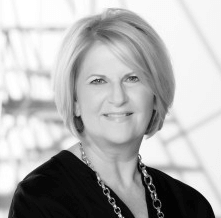
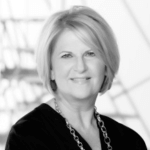 Becky Powell-Schwartz is the founder and CEO of The Powell Group, Becky Powell-Schwartz has been a thought partner to the C-suite for more than 25 years. Her depth of experience solving business and communications issues has made her a trusted advisor for executives of Fortune 500 and industry-leading companies across diverse business sectors. She is also Vistage International CEO group leader. Becky is a graduate of the Harvard University Mediation Training program, Leadership America, Leadership Texas and Leadership Dallas. She is also the recipient of the Most Powerful Women in PR Award from the Council of Public Relations. Additionally, she currently serves on the advisory boards of the Texas A&M Mays Business School Center for Retailing Studies; Leadership Women, the oldest women’s leadership program in North America; and Senior Source of Greater Dallas.
Becky Powell-Schwartz is the founder and CEO of The Powell Group, Becky Powell-Schwartz has been a thought partner to the C-suite for more than 25 years. Her depth of experience solving business and communications issues has made her a trusted advisor for executives of Fortune 500 and industry-leading companies across diverse business sectors. She is also Vistage International CEO group leader. Becky is a graduate of the Harvard University Mediation Training program, Leadership America, Leadership Texas and Leadership Dallas. She is also the recipient of the Most Powerful Women in PR Award from the Council of Public Relations. Additionally, she currently serves on the advisory boards of the Texas A&M Mays Business School Center for Retailing Studies; Leadership Women, the oldest women’s leadership program in North America; and Senior Source of Greater Dallas. 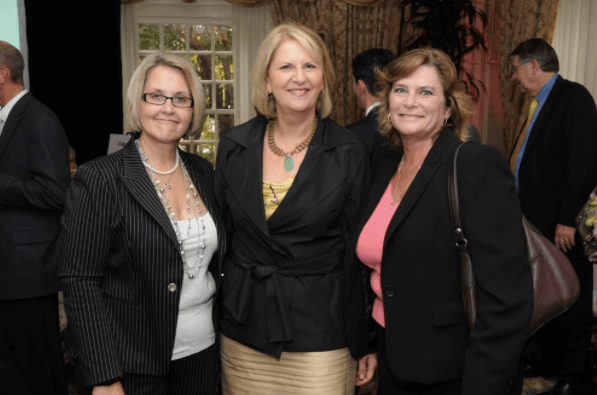
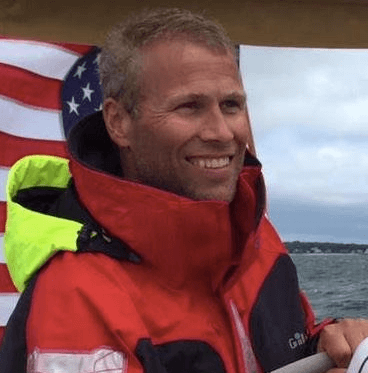
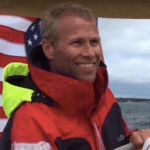 Dave Will (@propsdave) is a serial entrepreneur, and started a new company, PropFuel (focused on employee recognition and feedback). While working for SAP, a multi-billion dollar software company, nearly 20 years ago, he was advised to “walk faster and smile less, because perception is reality”. He took this to heart and started a business based around the antithesis of this advice. In 2001, he started what became Peach, a Learning Platform software company, and sold his to AKKR, a private equity firm. He’s serving on EO (Entrepreneurs’ Organization) Boston’s 2016-2017 board of directors as learning chair.
Dave Will (@propsdave) is a serial entrepreneur, and started a new company, PropFuel (focused on employee recognition and feedback). While working for SAP, a multi-billion dollar software company, nearly 20 years ago, he was advised to “walk faster and smile less, because perception is reality”. He took this to heart and started a business based around the antithesis of this advice. In 2001, he started what became Peach, a Learning Platform software company, and sold his to AKKR, a private equity firm. He’s serving on EO (Entrepreneurs’ Organization) Boston’s 2016-2017 board of directors as learning chair.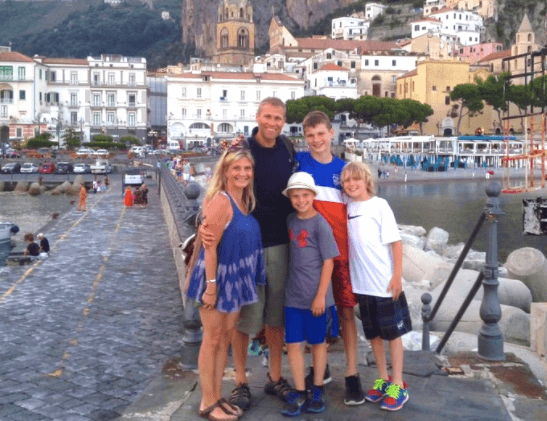
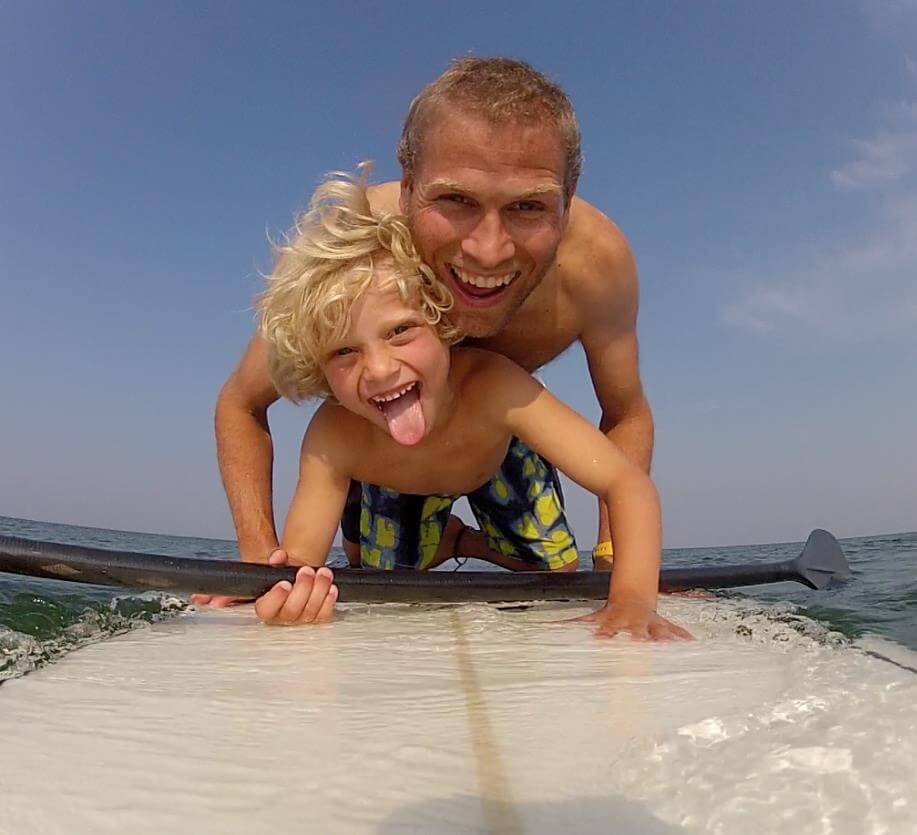
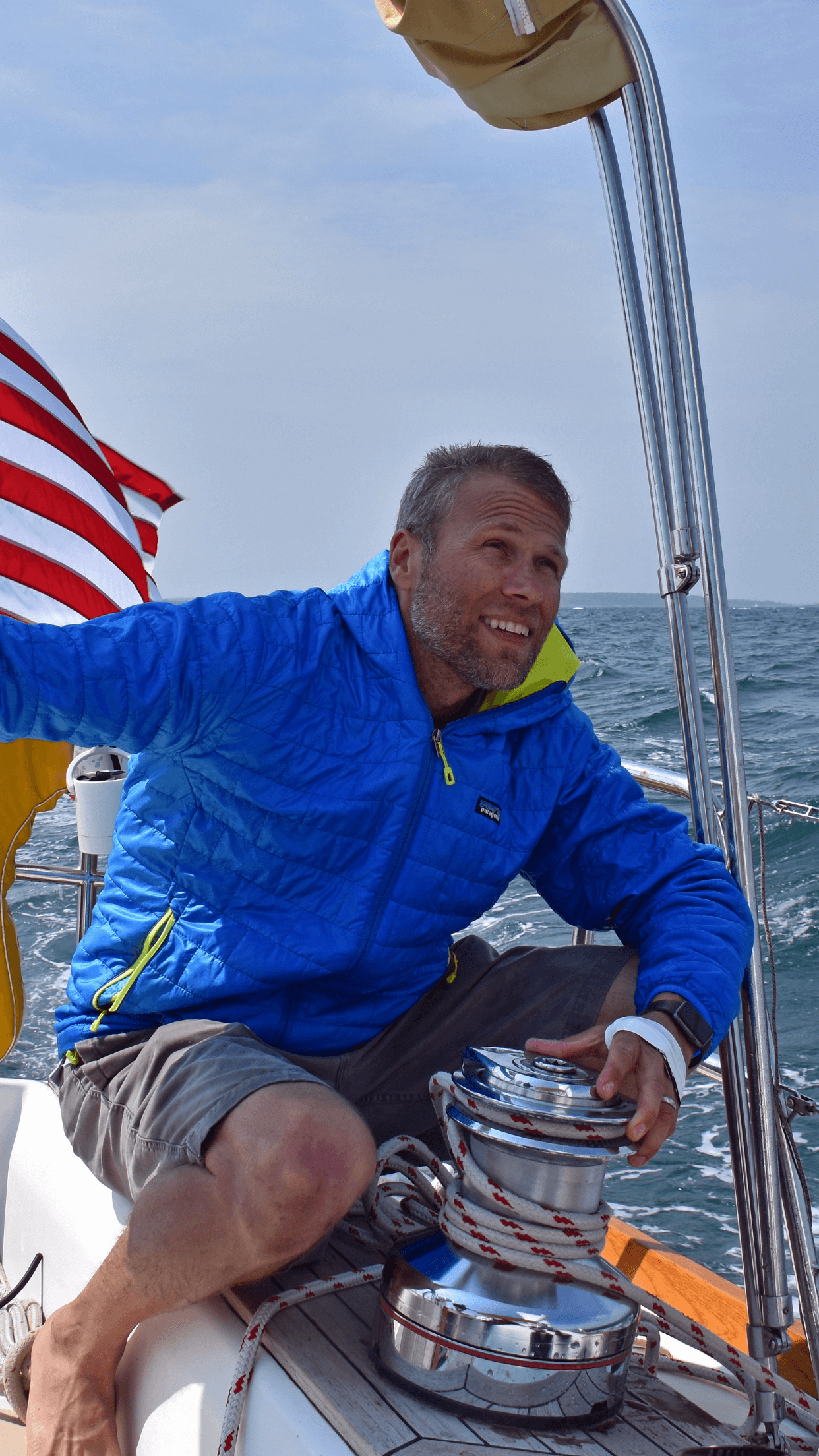
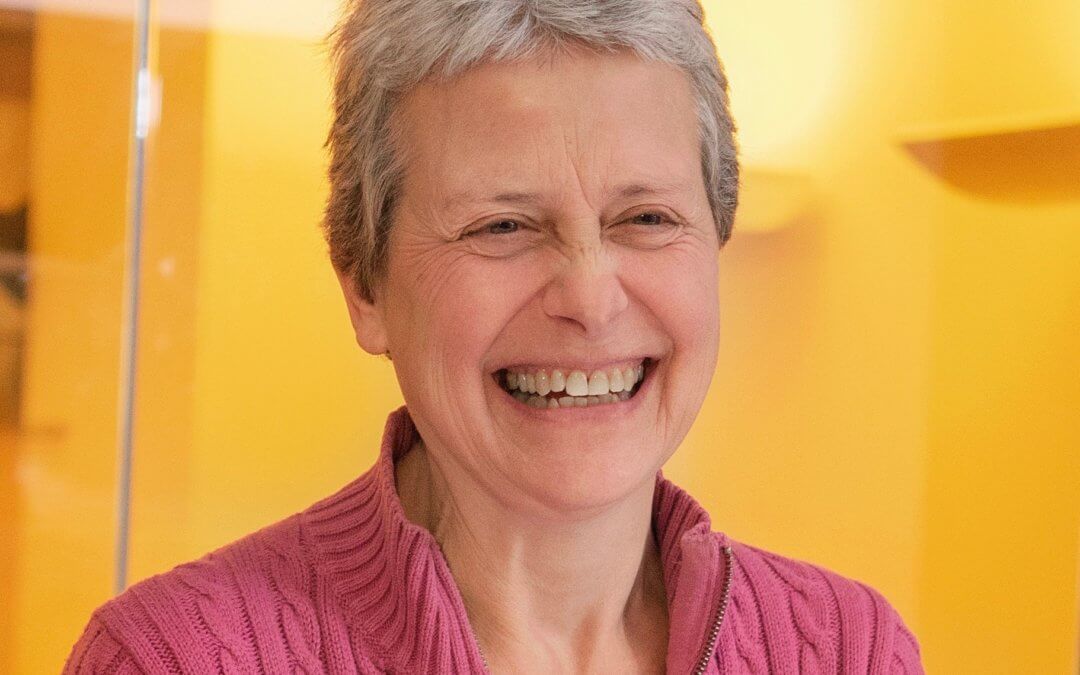
 Stefania Mallett | When You Cross Fearlessness & Insanely Helpfulness (Episode 3)
Stefania Mallett | When You Cross Fearlessness & Insanely Helpfulness (Episode 3)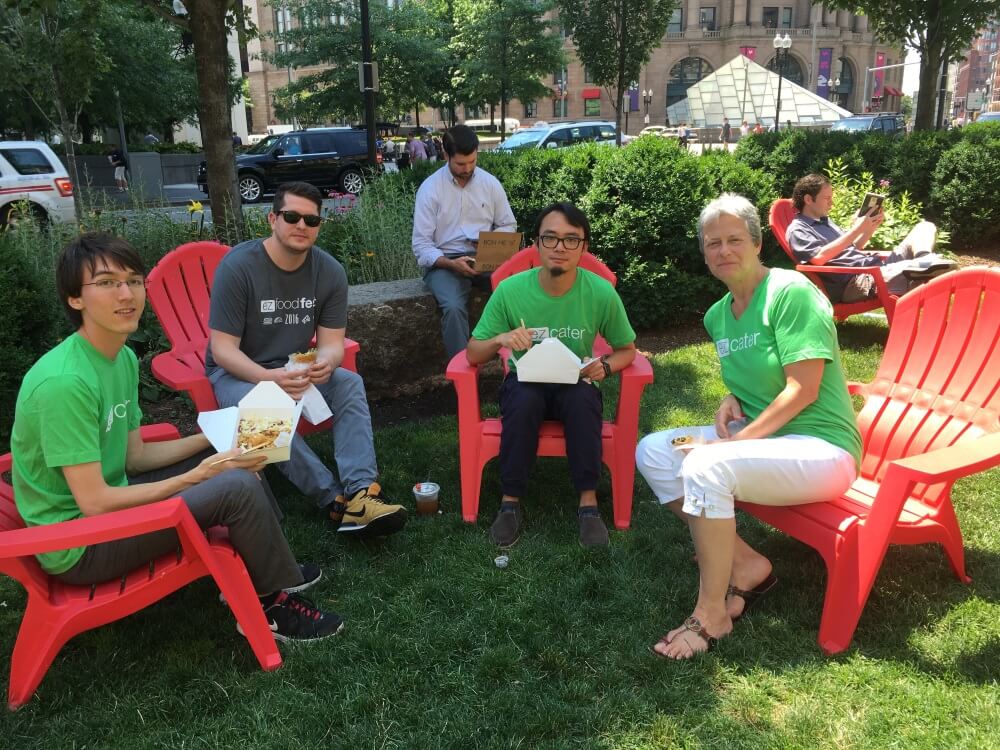

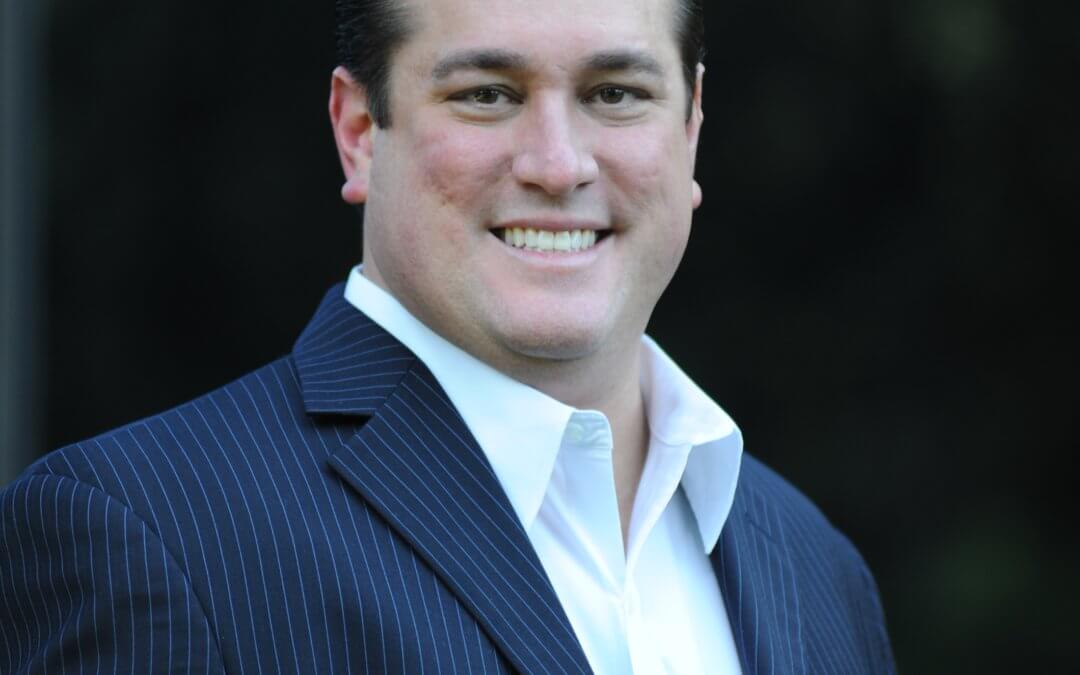
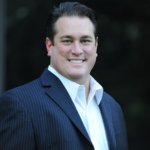 Brent Brightwell (@doublehorn) is the Senior Vice President of Products & Strategy at DoubleHorn in Austin. Brent Brightwell is a Technology Leader and Entrepreneur with extensive Startup, SMB, and large Enterprise experience. He is currently the SVP of Products at DoubleHorn where he is responsible for R&D, Product Management, Marketing, Alliances, and Strategy. Prior to DoubleHorn, Brent held positions such as CMO of Artisan Infrastructure, VP of Products for Gravitant, and Product Marketing Executive in the HP Helion Cloud organization. Brent has also led Global Marketing and did Technical Pre Sales for the HP Software Portfolio. Prior to Sales, he led R&D and Product Management for HP’s strategic Solutions.
Brent Brightwell (@doublehorn) is the Senior Vice President of Products & Strategy at DoubleHorn in Austin. Brent Brightwell is a Technology Leader and Entrepreneur with extensive Startup, SMB, and large Enterprise experience. He is currently the SVP of Products at DoubleHorn where he is responsible for R&D, Product Management, Marketing, Alliances, and Strategy. Prior to DoubleHorn, Brent held positions such as CMO of Artisan Infrastructure, VP of Products for Gravitant, and Product Marketing Executive in the HP Helion Cloud organization. Brent has also led Global Marketing and did Technical Pre Sales for the HP Software Portfolio. Prior to Sales, he led R&D and Product Management for HP’s strategic Solutions.
